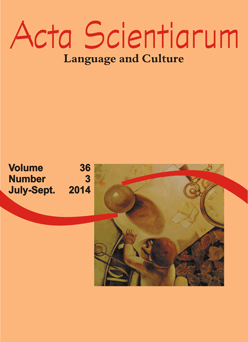<b>Petals of blood: nature, violence, and redemption in post-colonial Kenya
Abstract
This paper analyzes the process of domestication of the African natural environment, as portrayed in Kenyan writer and critic Ngugi wa Thiong’o’s Petals of Blood (1991), in order to understand how the novel represents the relation between cultural domination and the economic exploitation of the land and the work force, carried out by the British in Kenya, and detect, in the characters’ trajectories, the existence or not of forms of agency capable of minimizing the impacts of colonialism. My claim is that the novel builds a dialectics between violence and redemption, woven in the narrative through the formation of new subjectivities and the asymmetrical co-existence of different modes of life, to which the natural environment presents opposed values.
Downloads
DECLARATION OF ORIGINALITY AND COPYRIGHTS
I Declare that current article is original and has not been submitted for publication, in part or in whole, to any other national or international journal.
The copyrights belong exclusively to the authors. Published content is licensed under Creative Commons Attribution 4.0 (CC BY 4.0) guidelines, which allows sharing (copy and distribution of the material in any medium or format) and adaptation (remix, transform, and build upon the material) for any purpose, even commercially, under the terms of attribution.
Read this link for further information on how to use CC BY 4.0 properly.




















6.png)









